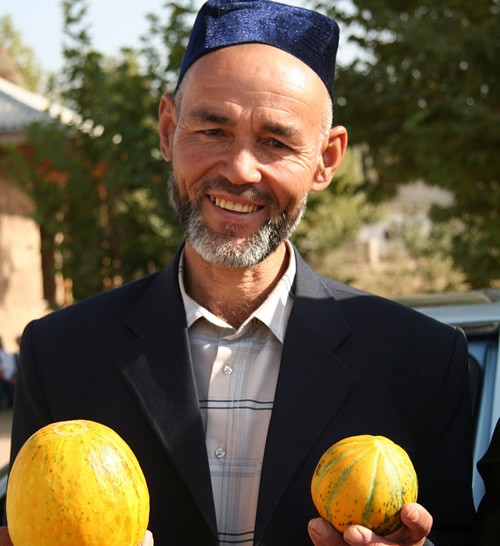
Makhadali Khuramov, who leases 2 hectares (approximately 5 acres) of land in Tajikistan’s Rudaki District, struggled for years to obtain water to irrigate his fields adequately. He attempted to create an association of water users to resolve his and his neighbors’ irrigation problems. Although he submitted all the necessary documents to the Union of Dekhkan Farms, the association’s registration was never completed as his neighbors were reluctant to join in, doubtful that they could collectively resolve their water management problems through an association.
Then representatives from a USAID program came to his community to discuss the assistance they could offer in establishing a water user association. At first, the local farmers, including Makhadali, were suspicious. But after several discussions, farmers agreed to work with the program and established the Samarkandi water users association, with Makhadali elected as board chairman.
Upon registration, the association received a USAID grant to rehabilitate their irrigation and drainage system. Within months, water flowed from the canal for the first time in years. The association also put in place a management system to ensure fair delivery of water. With a steady flow of water, Makhadali and his neighbors focused on growing their gardens and orchards and reaping benefits from their fields.
Before the irrigation, Makhadali’s income from his strawberry harvest was 200 Tajik somoni ($60). The following year, he was able to also grow melons, eggplants, peppers, cucumbers, tomatoes, and pumpkins, and earned 4,000 somoni ($1,200) — twenty times more income.
Perhaps the project’s most significant outcome has been the change in farmers’ attitudes and the sense of empowerment they have gained. “Now we have a real opportunity to solve our problems together, not only those related to irrigation and water management, but also other issues related to agriculture and community problems,” Makhadali said.







Comment
Make a general inquiry or suggest an improvement.